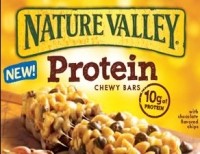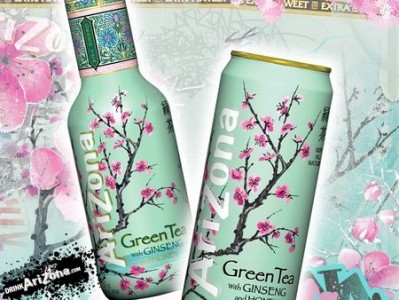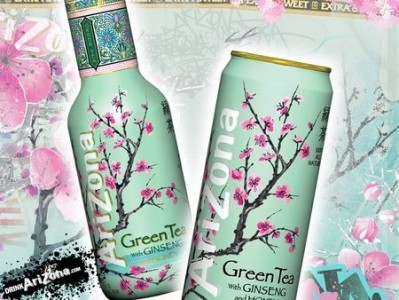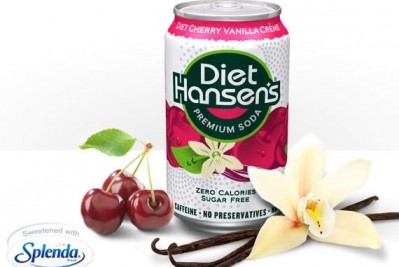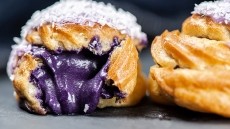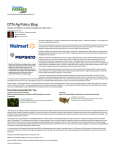CA judge partially certifies AriZona all-natural class action, but suggests plaintiffs are just after a fast buck
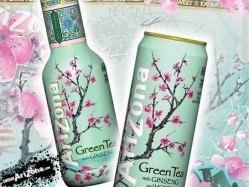
In a November 27 ruling on the long-running case filed in San Francisco, US district judge Richard Seeborg said the class will be unable to collect damages or restitution, in part, because they failed to prove that they paid any premium for the products outside of comparable products that did not claim to be natural.
He also noted that the plaintiffs appeared to be more interested in making money than correcting the allegedly misleading labeling at issue.
He added: “Although plaintiffs describe their pursuit of monetary relief as secondary to their desire for corrective advertising and cessation of the allegedly deceptive labeling practices … based on the entire record in this case it is clear the monetary relief predominates.”
High fructose corn syrup and citric acid are not natural, claim plaintiffs
The complaint, first filed in March 2010 on behalf of lead plaintiffs Laruen Ries and Serena Algozer, alleges that consumers are being misled by claims that AriZona Iced Tea is ‘All Natural’ given that it contains HFCS and citric acid.
HFCS, “which is produced by adding a series of enzymes to processed corn starch to change the glucose present in the corn into fructose, is not a natural product”, claim Ries and Algozer.
Meanwhile, citric acid is “man-made because it is produced from certain strains of the mold Aspergillus niger”.
The plaintiffs wanted certification of a class consisting of everyone in California who purchased an Arizona brand beverage from March 17, 2006 until the present time which contained HFCS or citric acid … which were advertised or labeled as ‘All Natural,’ or ‘100% Natural.’
The defendants (Arizona Beverages USA, Hornell Brewing Company, Beverage Marketing USA, and Ferolito, Vultaggio & Sons) called for summary judgment.
Judge: Proposed class can move forward, but only to seek declaratory and injunctive relief
Judge Richard Seeborg agreed that Ries and Algozer had relied on the ‘all natural’ advertising claims in their decision to buy the drinks and felt deceived when they learned the claims were (allegedly) not true.
He also said the proposed class can move forward to seek declaratory and injunctive relief, including their pursuit of a corrective advertising campaign or to have the company stop the allegedly deceptive labeling practices.
However, he denied class certification for claims seeking monetary damages, including restitution, reimbursement, refund and disgorgement.
Broader ramifications of the case
Justin Prochnow, an attorney based in the Denver office of law firm Greenberg Traurig, noted that “at first review, it does appear that the attorneys could still potentially collect attorney’s fees if the case moves forward.”
But he added: “Perhaps [this] even more glaringly demonstrates that these cases are all about generating income for the attorneys and that the alleged ‘aggrieved parties’ get little to nothing.”
Attorney: Plaintiffs thought they could have their cake and eat it too
Writing about the case in the Lexology website, Morrison & Foerster LLP attorneys Rebekah Kaufman and Alexis A. Amezcua added: “What is striking is that the court only certified a class for declaratory and injunctive relief and denied plaintiffs’ bid to certify a class seeking monetary restitution based on the purchase price.”
They added: “Plaintiffs perhaps thought they could have their cake and eat it too by nonetheless seeking restitution on behalf of the class. The court dashed any such hope.”
Role of ingredients list versus front of pack claims
But what can we learn from recent ‘all-natural’ class action lawsuit cases? And if claims made on the front of pack are misleading, does labeling ingredients accurately on the back of the pack does get firms off the hook?
Natalie Naugle, an associate at Morrison Foerster’s San Francisco office, noted in a recent posting on the Private Surgeon General Class Action Defender blog that “manufacturers might assume that they can avoid false advertising claims by accurately disclosing a product’s ingredients on the ingredient label”.
For example, in the Videtto v. Kellogg USA case on Froot Loops (No. 2:08CV01324-MCEDAD, 2009 WL 1439086 (E.D. Cal. May 21, 2009), the court found that “the fanciful use of a nonsensical word [‘Froot’] cannot reasonably be interpreted to imply that the Product contains or is made from actual fruit.”
Similarly, in the Werbel v. PepsiCo case (C 09-04456 SBA, 2010 WL 2673860 (N.D. Cal. July 2, 2010), the judge ruled that no reasonable consumer could mistake “cereal balls with a rough, textured surface in hues of deep purple, teal, chartreuse green and bright red” (Cap’n Crunch’s Crunch Berries - pictured) for natural fruit.
However, in a 2008 case involving Gerber’s Fruit Juice Snacks (Williams v. Gerber Products Co - 552 F.3d 934 (9th Cir. 2008), the Ninth Circuit court found that consumers shouldn’t have to “look beyond misleading representations on the front of the box to discover the truth from the ingredient list”.
In the end, said Naugle, “Manufacturers… should consider the totality of their advertising claims and not rely on ingredient lists to cure potentially false or deceptive statements made on a product’s packaging.”
General Mills: Complaint does not cite any scientific authority for distinction between ‘processed’ and ‘highly processed’ food…
Meanwhile, some leading manufacturers are fighting their corner in all-natural cases, accusing plaintiffs of junk science.
In a recent motion to dismiss a complaint accusing it of falsely advertising Nature Valley granola bars as ‘100% natural’ when they contain HFCS, high-maltose corn syrup, and/or maltodextrin (Chin et al. v. General Mills), General Mills said:
“Plaintiffs’ theory of liability is premised on their distinction between processed and highly processed corn. Cornstarch is itself processed. It does not grow out of the ground, but is created through the process of milling.
“But milling, in Plaintiffs’ view, does not produce a ‘non-natural’ ingredient. It is the additional step of treating the cornstarch with enzymes that Plaintiffs assert crosses the threshold from processed to ‘highly processed,’ and from natural to non-natural. The Complaint does not cite any scientific authority for this distinction.”


